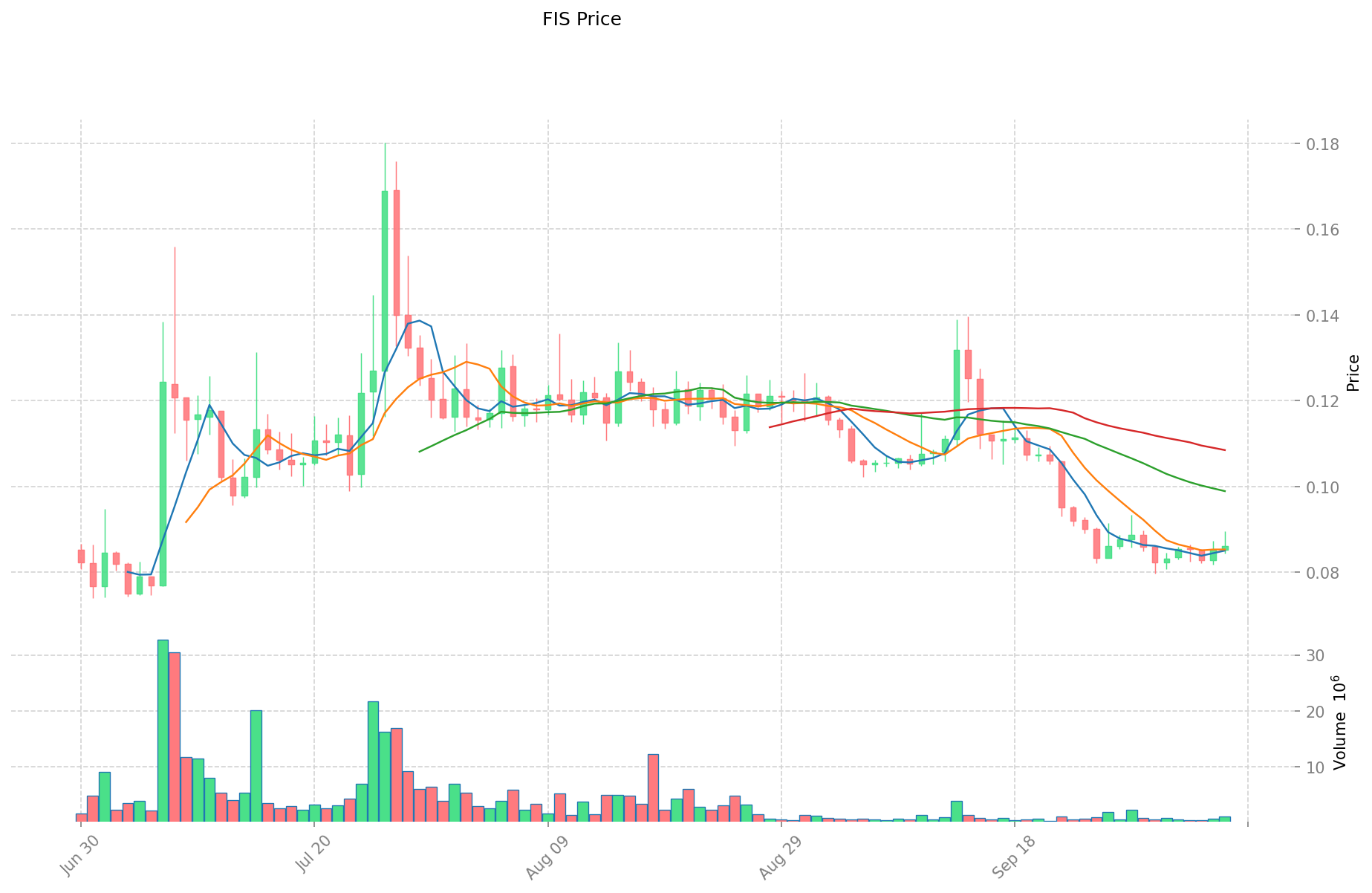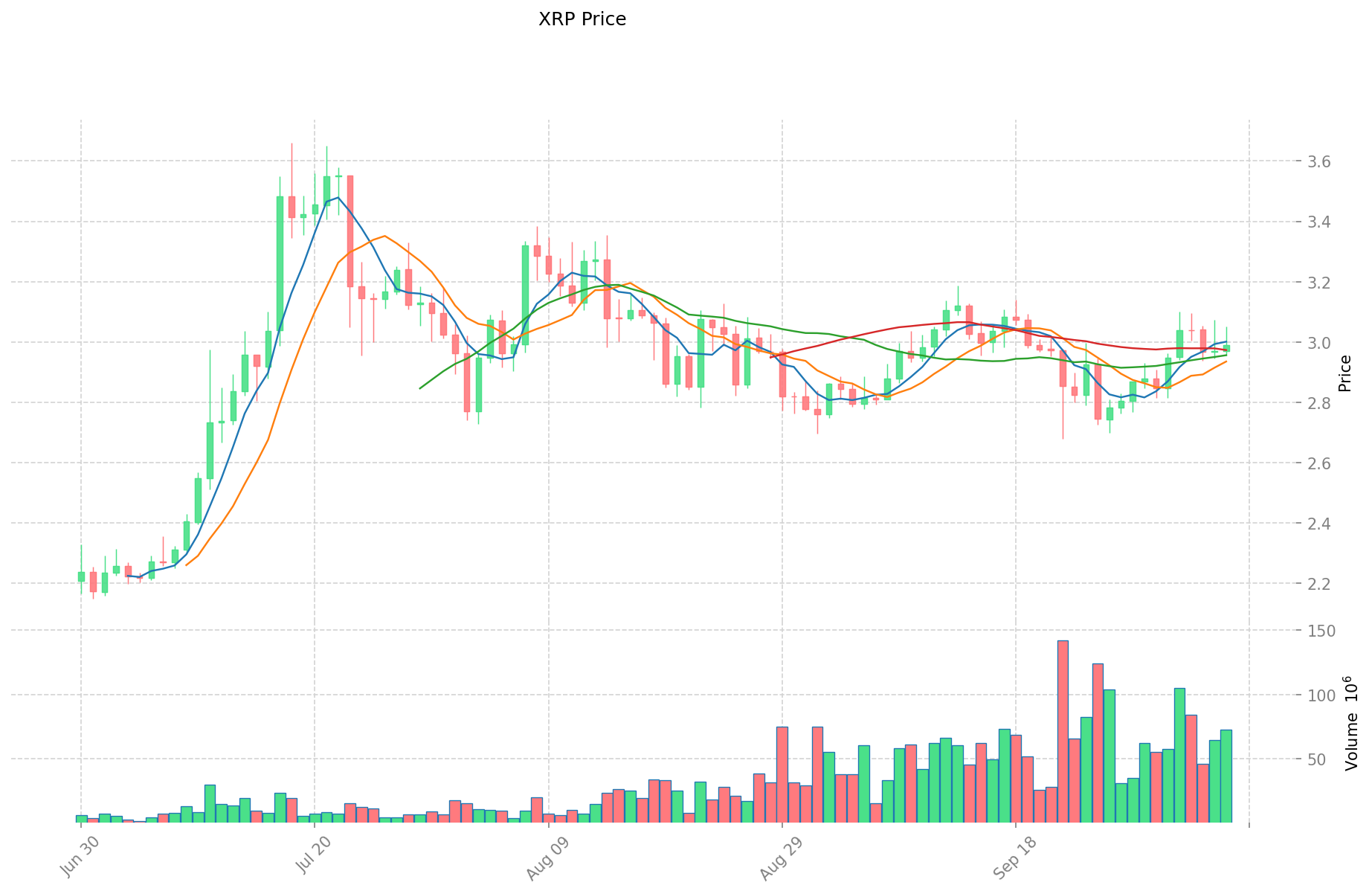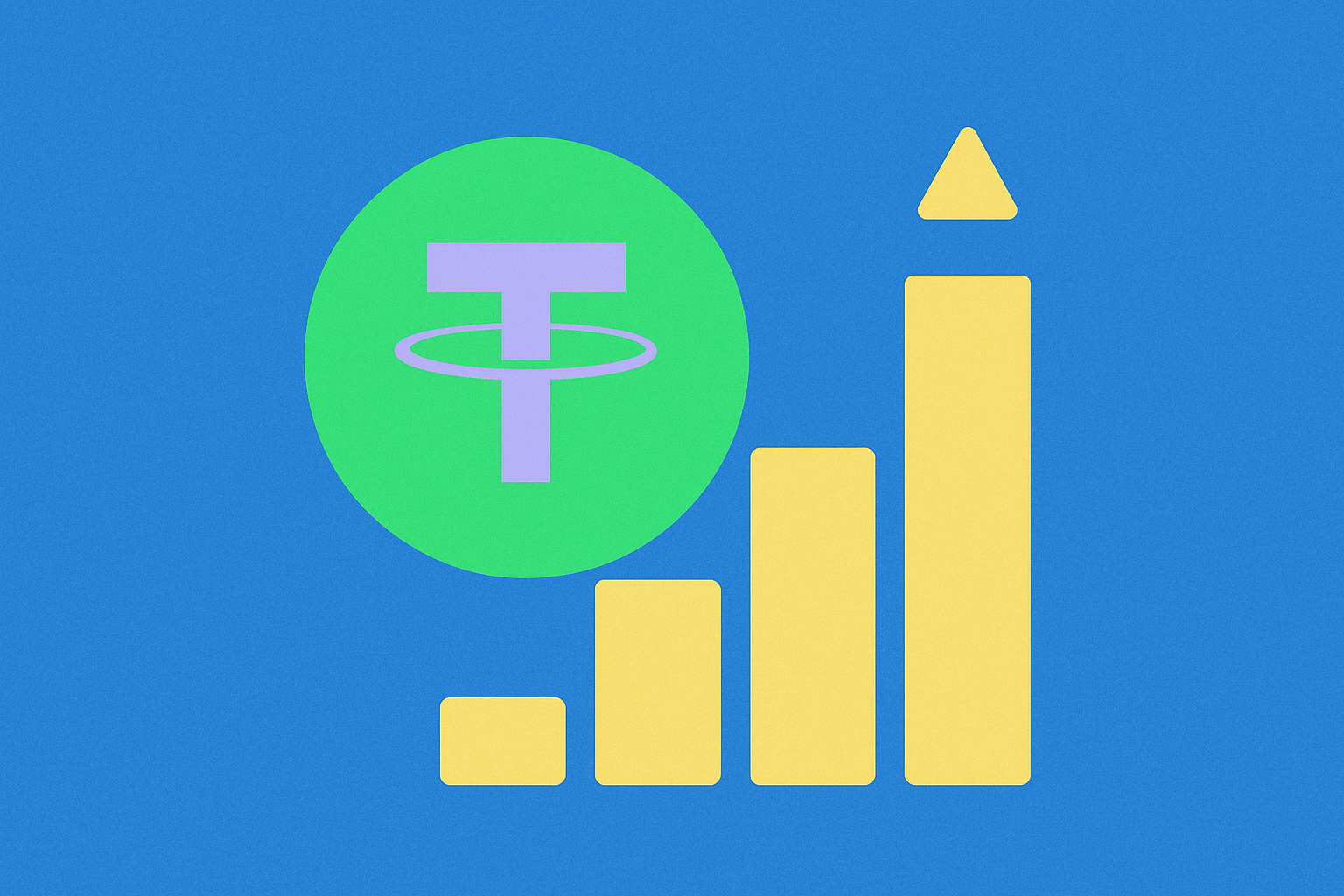FIS vs XRP : Analyse comparative des opportunités de staking et du potentiel de croissance sur le marché des cryptomonnaies


Comparaison d’investissement entre FIS et XRP
Dans l’univers des cryptomonnaies, le comparatif entre FIS et XRP s’impose comme une référence incontournable pour tout investisseur. Ces deux actifs se distinguent par leur rang en capitalisation, leurs usages et leur évolution de prix, mais incarnent surtout des positions différentes au sein des actifs numériques.
Stafi (FIS) : Depuis son arrivée en 2020, FIS s’est imposé comme un acteur clé dans la libération de la liquidité des actifs stakés.
XRP (XRP) : Lancé en 2012, XRP s’est imposé comme une solution rapide et économique pour les transferts transfrontaliers, figurant parmi les cryptomonnaies les plus échangées et les mieux capitalisées à l’échelle mondiale.
Ce dossier propose une analyse complète de la valeur d’investissement FIS vs XRP, en examinant l’historique des prix, l’économie des jetons, l’adoption institutionnelle, les écosystèmes technologiques et les perspectives futures, pour répondre à la question essentielle des investisseurs :
"Quel est le meilleur achat à ce jour ?"
I. Historique des prix et situation actuelle du marché
Tendances historiques des prix StaFi (FIS) et XRP (XRP)
- 2021 : FIS a atteint son plus haut historique à 4,7 $ le 19 mars 2021.
- 2025 : XRP a franchi un nouveau sommet à 3,65 $ le 18 juillet 2025.
- Analyse comparative : Lors du dernier cycle, FIS a chuté de 4,7 $ à 0,074136 $, alors que XRP a affiché une plus grande résilience en maintenant un niveau de prix supérieur.
Situation du marché au 07 octobre 2025
- Prix FIS : 0,0874 $
- Prix XRP : 2,984 $
- Volume échangé sur 24h : FIS 74 148,46 $ vs XRP 219 075 938,51 $
- Indice de Sentiment du Marché (Fear & Greed Index) : 70 (Greed)
Consultez les prix en temps réel :
- Voir le prix du FIS Prix du marché
- Voir le prix du XRP Prix du marché


Principaux facteurs influençant la valeur d’investissement FIS vs XRP
I. Comparatif des mécanismes d’émission (économie des jetons)
- FIS : Propositions de gouvernance visant à réduire l’émission pour accroître la rareté, récemment intégré sur les principales plateformes avec contrats à terme perpétuels
- XRP : Offre fixe sans minage ; algorithme de consensus unique avec plus de 150 validateurs indépendants
- 📌 Schéma historique : Les mécanismes d’émission conditionnent les cycles de prix, l’offre fixe de XRP assurant une stabilité, tandis que la réduction potentielle de FIS vise à renforcer la rareté
II. Adoption institutionnelle et cas d’usage
- Détention institutionnelle : XRP bénéficie de la détention majeure de SBI Holdings, soit environ 1,6 trillion de yens (10 milliards $) en XRP et actifs Ripple
- Adoption entreprise : XRP domine le secteur des paiements transfrontaliers grâce à ses partenariats avec SBI Remit, Tranglo, Pyypl et Banco Rendimento ; FIS se concentre sur l’innovation de liquidité DeFi
- Réglementation : XRP a obtenu une sécurité juridique en 2025, après le règlement du conflit Ripple-SEC ; conforme aux cadres japonais, britanniques et européens (MiCA)
III. Développement technique et écosystème
- Évolutions techniques FIS : Intégration IA et Liquid Staking as a Service (LSaaS, Staking liquide en tant que service), renforçant la sécurité et octroyant un pouvoir de gouvernance aux utilisateurs
- Développement XRP : Amendement XLS-20 pour les NFT intégrés, propositions XLS-70/XLS-80 pour les identifiants numériques et les domaines d’autorisation, vitesse de règlement de 3 à 5 secondes
- Comparatif des écosystèmes : XRP offre des usages étendus dans les programmes de fidélité, le tourisme et les règlements institutionnels ; FIS reste axé sur l’innovation DeFi
IV. Cycles macroéconomiques et de marché
- Performance en environnement inflationniste : La présence institutionnelle de XRP lui offre une stabilité relative
- Impact des politiques monétaires : En 2025, XRP bénéficie d’une clarté réglementaire, ce qui devrait limiter sa volatilité par rapport aux autres actifs crypto
- Facteurs géopolitiques : L’utilité de XRP pour les paiements transfrontaliers s’affirme sur les marchés émergents, notamment en Asie-Pacifique où la demande de transferts est forte
III. Prévisions de prix 2025-2030 : FIS vs XRP
Prévisions à court terme (2025)
- FIS : Scénario prudent 0,0454 $ - 0,0874 $ | Scénario optimiste 0,0874 $ - 0,1092 $
- XRP : Scénario prudent 2,72 $ - 2,99 $ | Scénario optimiste 2,99 $ - 3,32 $
Prévisions à moyen terme (2027)
- FIS pourrait entrer en phase de croissance, prix attendu entre 0,0752 $ et 0,1272 $
- XRP pourrait évoluer en marché haussier, prix attendu entre 3,39 $ et 5,03 $
- Facteurs clés : afflux de capitaux institutionnels, ETF, développement de l’écosystème
Prévisions à long terme (2030)
- FIS : Scénario de base 0,1008 $ - 0,1418 $ | Scénario optimiste 0,1418 $ - 0,1971 $
- XRP : Scénario de base 4,47 $ - 6,48 $ | Scénario optimiste 6,48 $ - 8,62 $
Avertissement :
FIS :
| Année | Prix max prévisionnel | Prix moyen prévisionnel | Prix min prévisionnel | Variation (%) |
|---|---|---|---|---|
| 2025 | 0,1092125 | 0,08737 | 0,0454324 | 0 |
| 2026 | 0,1228640625 | 0,09829125 | 0,068803875 | 12 |
| 2027 | 0,1271643046875 | 0,11057765625 | 0,07519280625 | 26 |
| 2028 | 0,135512917734375 | 0,11887098046875 | 0,102229043203125 | 36 |
| 2029 | 0,156446097394921 | 0,127191949101562 | 0,094122042335156 | 45 |
| 2030 | 0,197128442315056 | 0,141819023248242 | 0,100691506506251 | 62 |
XRP :
| Année | Prix max prévisionnel | Prix moyen prévisionnel | Prix min prévisionnel | Variation (%) |
|---|---|---|---|---|
| 2025 | 3,3189 | 2,99 | 2,7209 | 0 |
| 2026 | 4,290052 | 3,15445 | 2,460471 | 5 |
| 2027 | 5,02503885 | 3,722251 | 3,38724841 | 24 |
| 2028 | 6,07936644575 | 4,373644925 | 3,4114430415 | 46 |
| 2029 | 7,735228414355 | 5,226505685375 | 3,91987926403125 | 75 |
| 2030 | 8,61955317632045 | 6,480867049865 | 4,47179826440685 | 117 |
IV. Comparatif des stratégies d’investissement : FIS vs XRP
Stratégies d’investissement long terme vs court terme
- FIS : Idéal pour les investisseurs orientés innovation DeFi et solutions de liquidité
- XRP : Adapté aux investisseurs privilégiant une solution de paiement transfrontalier établie et une conformité réglementaire
Gestion du risque et répartition d’actifs
- Investisseurs prudents : FIS 20 % vs XRP 80 %
- Investisseurs dynamiques : FIS 40 % vs XRP 60 %
- Outils de couverture : allocation en stablecoins, options, portefeuilles multi-devises
V. Analyse des risques potentiels
Risque de marché
- FIS : Volatilité élevée due à une capitalisation et un volume d’échange faibles
- XRP : Exposé aux variations du sentiment de marché liées à l’adoption institutionnelle
Risque technique
- FIS : Scalabilité, stabilité réseau
- XRP : Risque de centralisation, vulnérabilités de sécurité potentielles
Risque réglementaire
- Les politiques réglementaires internationales peuvent impacter différemment les deux actifs ; XRP dispose d’un statut réglementaire plus clair dans de nombreux pays
VI. Conclusion : Quel est le meilleur achat ?
Synthèse de la valeur d’investissement :
- FIS : Innovation en liquidité DeFi, potentiel de croissance dans un secteur DeFi en pleine expansion
- XRP : Solution de paiement transfrontalier éprouvée, forte adoption institutionnelle, clarté réglementaire
Conseils d’investissement :
- Débutants : privilégier XRP pour sa position dominante et sa conformité réglementaire
- Investisseurs expérimentés : constituer un portefeuille équilibré, misant sur la croissance potentielle de FIS et la stabilité de XRP
- Institutionnels : se concentrer sur XRP pour sa conformité et ses usages établis dans les paiements transfrontaliers
⚠️ Avertissement : Le marché des cryptomonnaies est extrêmement volatil et cet article ne constitue pas un conseil en investissement. None
VII. FAQ
Q1 : Quelles sont les principales différences d’utilisation entre FIS et XRP ?
R1 : FIS libère la liquidité des actifs stakés dans la DeFi, tandis que XRP vise les paiements transfrontaliers rapides et économiques.
Q2 : Comment se différencient les mécanismes d’émission de FIS et XRP ?
R2 : FIS envisage de réduire l’émission de tokens pour renforcer la rareté ; XRP dispose d’une offre fixe sans minage.
Q3 : Quelle cryptomonnaie a historiquement montré la plus grande stabilité de prix ?
R3 : XRP a affiché une résilience supérieure, maintenant des prix élevés alors que FIS a chuté depuis son sommet historique.
Q4 : Comment l’adoption institutionnelle se compare-t-elle entre FIS et XRP ?
R4 : XRP possède un net avantage grâce à la détention de SBI Holdings et à de nombreux partenariats institutionnels pour les paiements transfrontaliers.
Q5 : Quels sont les développements techniques majeurs pour chaque cryptomonnaie ?
R5 : FIS intègre IA et LSaaS ; XRP a déployé le support NFT intégré et développe des outils pour les identifiants numériques et le contrôle des domaines d’autorisation.
Q6 : Quelles différences réglementaires entre FIS et XRP ?
R6 : XRP a obtenu une sécurité juridique en 2025 après le règlement du litige Ripple-SEC, et est conforme dans plusieurs juridictions ; le statut de FIS reste moins précis.
Q7 : Quelles stratégies d’investissement sont recommandées pour FIS et XRP ?
R7 : Pour les profils prudents, allocation de 20 % FIS et 80 % XRP ; pour les profils dynamiques, 40 % FIS et 60 % XRP. Les débutants privilégieront XRP pour sa position dominante.

Analyse de Staking de SEI : 60-70% de l'offre verrouillée et son impact sur le prix

Comment commencer le Yield Farming Crypto : Meilleurs conseils

USD1 stablecoin sur Gate : Analyse et Opportunités d'Investissement pour le Jeton WLFI

Maximisez votre richesse en Cryptoactifs : Stratégies de gestion VIP de Gate.com en 2025

APR vs Taux d'Intérêt dans DeFi : Ce que les Investisseurs Crypto Doivent Savoir

Lancement du programme de points USD1 : Gate et WLFI s'associent pour de multiples opportunités de gains

Comprendre les cold wallets : les trois principales solutions pour le stockage sécurisé des crypto-monnaies

Prévision du prix SCOR 2025 : analyse d'experts et perspectives de marché pour le titre SCOR pour l'année à venir

Solutions aux problèmes de retrait d'USDT sur les plateformes crypto







